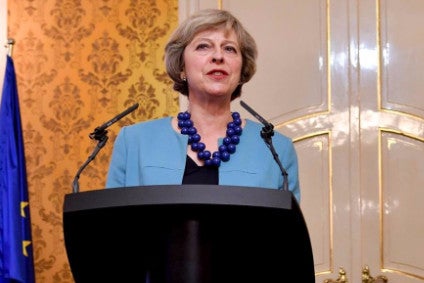The outlook for the UK’s automotive sector after Brexit – the now omnipresent term for the UK’s exit from the EU – remains somewhat uncertain. Many in the UK’s automotive industry want trading arrangements with the EU to remain as close as possible to those that apply now (zero tariffs, cross-border shipments of parts and finished vehicles unhindered by red tape). That could constitute what is being called a ‘soft Brexit’ and it would take some negotiating (given the EU trade bloc creates these advantages primarily for its members).
The talk from the UK government lately seems to be preparing the ground for a ‘hard Brexit’. Essentially, this would put the UK outside of the single market and customs union. That could put additional costs on UK-EU trade, from the imposition of tariffs (under WTO, 10% on cars, 5-10% on parts) and new administrative arrangements on trade that would apply because the UK is no longer in the EU customs union (estimates vary, but that added ‘friction’ on trade could amount to another 5% on costs). This is what the UK auto industry really fears, because it would, on the face of it, make the UK relatively less attractive – in a European context – as a manufacturing location, versus being inside the eurozone. Auto industry margins at volume plants that ship mainly to the EU are tight and, consequently, investment to the UK would, the argument goes, dry up.
Car companies, though, will be viewing the situation in the round. The trade negotiations between the UK and EU have yet to actually start (and they are not to be confused with the negotiations on the terms of the UK’s exit, the two-year Article 50 triggered talks – which will be triggered next week). It’s an unprecedented situation. A country that enjoys free and unfettered trade with EU countries is moving to a position where that can no longer be assumed – but that doesn’t necessarily mean a 10% tariff on car shipments is inevitable (there is plenty of room between 0% and 10%). While all parties ultimately want a solution that causes the least economic damage, there is going to be plenty of politics to be played out along the way.
The auto industry, like others, will adapt to new conditions.
The auto industry, like others, will adapt to new conditions. The competitive landscape is constantly changing and any new trading arrangements between the UK and EU are an element – albeit a very significant one – in the mix. PSA’s Carlos Tavares has pointed out that a hard Brexit could actually act as an incentive to make more and source more components in the UK. The net position for the UK, in terms of economic activity and manufacturing, may not be quite as cut and dried as some are saying. Add in currency exchange rates and other factors that impact UK manufacturing competitiveness and the net position is very difficult to predict, at this stage.
Uncertainty generally acts as a deterrent to investment, but it can also be siezed upon for leverage. Nissan has done that already in its talks with the UK government, although the assurances it has received from the UK government are far from clear. Last week we heard that Toyota will invest at its UK plant and has secured some UK government assistance. It was quiet on future models for the UK plant though. Like Nissan, it will want to see how the competitive landscape looks after 2019 and what kind of trade deal the UK government secures with the EU. Investments in new models for the second half of the 2020s are the decisions that both have yet to make.
Will a trade deal be agreed by the spring of 2019 when the UK leaves the EU? It could be politically very difficult to secure full agreement by then (there are 27 member states with lawmaking institutions that have to sign-off), which would mean that a ‘transitional’ deal would be necessary to avoid WTO-based tariffs. I expect that to become, along with the UK’s financial settlement (‘exit bill’), a major focus of discussions over the next few months. If the transitional trade arrangements are easily agreed and smooth, avoiding the so-called cliff edge of tariffs and major customs barriers, companies like Nissan and Toyota will have much more confidence in the longer-term outlook for a UK-EU trade deal that minimises economic disruption – both for the UK and the EU.
Toyota announces new investment in UK
Evolution Time Critical on what a ‘hard Brexit’ could mean for the UK automotive logistics sector







